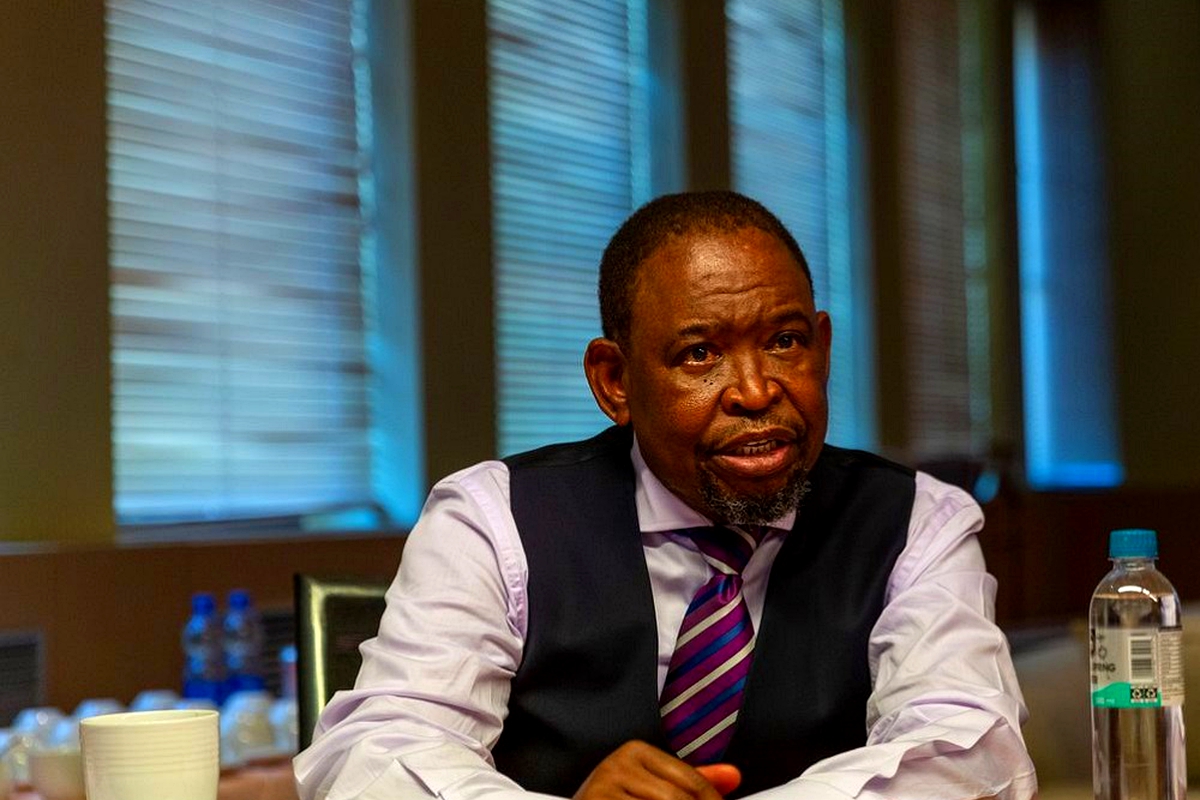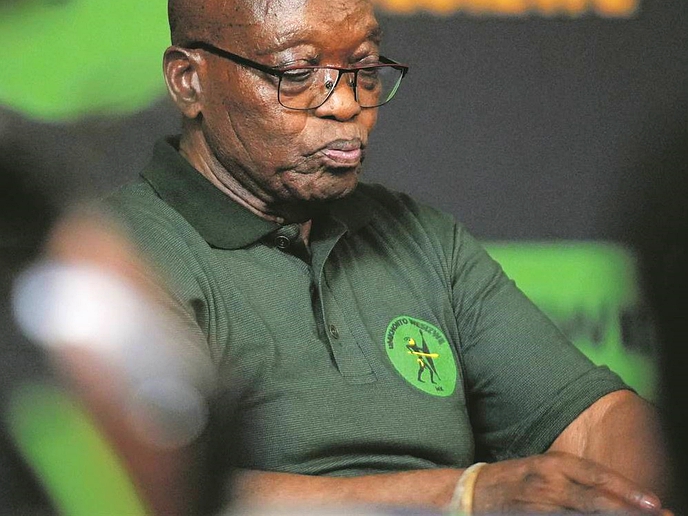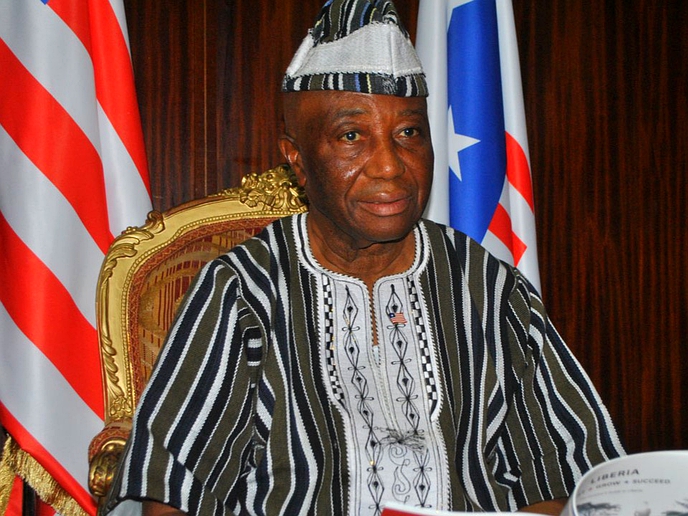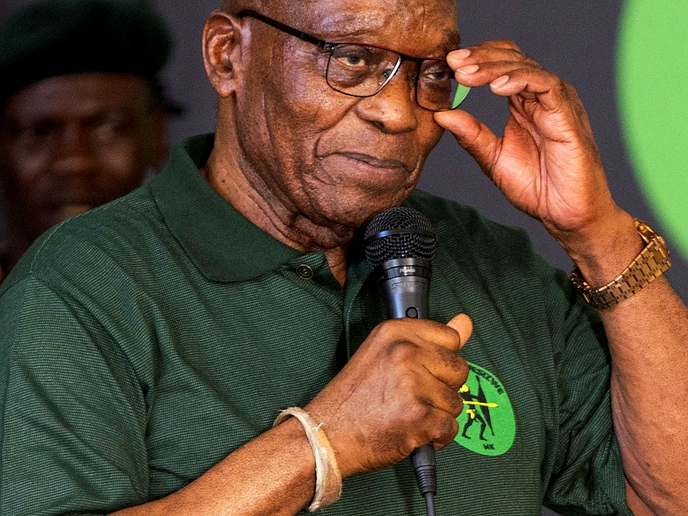THE Public Servants’ Association (PSA) which represents more than 235 000 public sector employees, is preparing for industrial action after the majority of its members rejected the government’s latest salary offer.
africa
Oct. 13, 2022
OWN CORRESPONDENT
4 min read
Another massive strike planned for SA

SA Finance Minister, Enoch Godongwana
Story highlights
Public service members who work for government institutions, including the South African Police Service, teachers, or nurses and public healthcare workers, wish to down tools in protest against a lower-than-inflation proposed wage increase by the government.
South Africa is currently embroiled in industrial action, the latest being at the national port and freight company Transnet, and costing the country billions in productivity loss.
Writing in a press statement, the public servants union declared a dispute on Tuesday (October 11) after the government made a final offer of 2%, which was then subsequently improved to a 3% pensionable salary adjustment and continued payment of the cash gratuity until March 31, 2023/.
This offer, however, was again rejected by a majority vote of the union’s members.
While public sector unions have demanded an 8% wage increase, the PSA said that they went as low as 6.5% – arguing that this is a deep compromise, considering inflation is above 7%.
The PSA said that the government has indicated that the offer is now “off the table”, but the union believes that pending strike action will prompt the government to reconsider its position.
“The PSA remains committed to serving the interests of the Union’s members and is convinced that a strike is unavoidable if the government remains arrogant,” said the union.
The 3% pay offer was turned down on the grounds that public sector employees’ salaries had not grown in the previous three years. The unions claimed that because costs are rising but earnings have remained flat, the lack of increases has had a detrimental effect on the lives of its workers.
On October 6, the minister of Public Service and Administration (DPSA) Thulas Nxesi and finance minister Enoch Godongwana said that the government’s proposed 3% increase was “generous”.
The ministers said that the government is grappling with a “balancing act” between wage increases and additional headcounts, saying “there’s always competition” between the two.
Frontline services need more employees to keep up with the increasing demand for public services such as in education, police, and health – which have not increased in line with the growing population, said the ministers.
“It becomes imperative that the current and future wage agreements strive to strike a balance between remuneration increases and the need for additional headcounts.”
To continue with the strike legally, the union said it has complied with the Labour Relations Act and has engaged with respective parties to propose draft picketing rules before filing its notice to strike.
The PSA said that by October 17, the employer and the union would conclude on the rules that, if not agreed upon, the union would issue a notice to strike and commence with a picket in support of a strike.
“It has been more than three years since public servants have received a salary increase while the cost of food, electricity, petrol and transport have escalated,” the PSA said. “In addition, increases to the repo rate have worsened the lives of public servants.”
Strike season is in full swing, and according to new data in South African Reserve Bank’s Quarterly Bulletin over the first half of this year, the economy lost a total of 1.6 million workdays as a result of industrial action.
The increase in the number of work days lost is a direct result of 31 000 workers at three of the country’s gold mines owned by Sibanye Stillwater downing tools for three months.
Enjoy our daily newsletter from today
Access exclusive newsletters, along with previews of new media releases.
Transnet and labour unions, meanwhile, are expected to resume conciliation talks at the Commission for Conciliation, Mediation and Arbitration (CCMA) on Wednesday (October 12), following protracted wage negotiations which culminated in an impasse and industrial action.
The state rail and ports company, together with the unions, convened for CCMA-mediated talks on Monday which, according to Transnet, “ended with the parties agreeing and signing the picketing rules and picketing sites” for the current strike action that workers are embarking on.
“Transnet is hopeful that the unions will formally table their position, to enable the company to assess its feasibility, taking into account affordability and sustainability imperatives for the business, balanced with the needs of employees.
“Transnet remains committed to a speedy resolution to the current impasse, to enable the business to focus its attention on the sustainable turnaround and improvement of operations,” the state-owned company said.
The company has also called on striking workers not to damage or interfere with infrastructure during their protest.
Meanwhile, Transnet said it has met with the leadership of the deciduous fruit industry for discussions on contingency plans for fruit exports in light of the industrial action.
According to the company, the deciduous fruit season is expected to fully commence at the end of this month.
“Transnet is working closely with industry to ensure that the perishable products, along with other cargo with a limited shelf-life, are prioritised at the ports. A joint integrated planning team with industry will also be established to mitigate any further delays,” the state-owned company said.
On a broader scale, Transnet said it remains committed to moving cargo despite the current challenges.
Transnet’s latest proposal for pay raises of up to 5% and a boost to housing and medical allowances of 1% was rejected by the United National Transport Union (Untu).
The labour group advised Transnet that it would consider an increase above 8%, a position that resulted in a deadlock. - BusinessTech
Tailored for you






